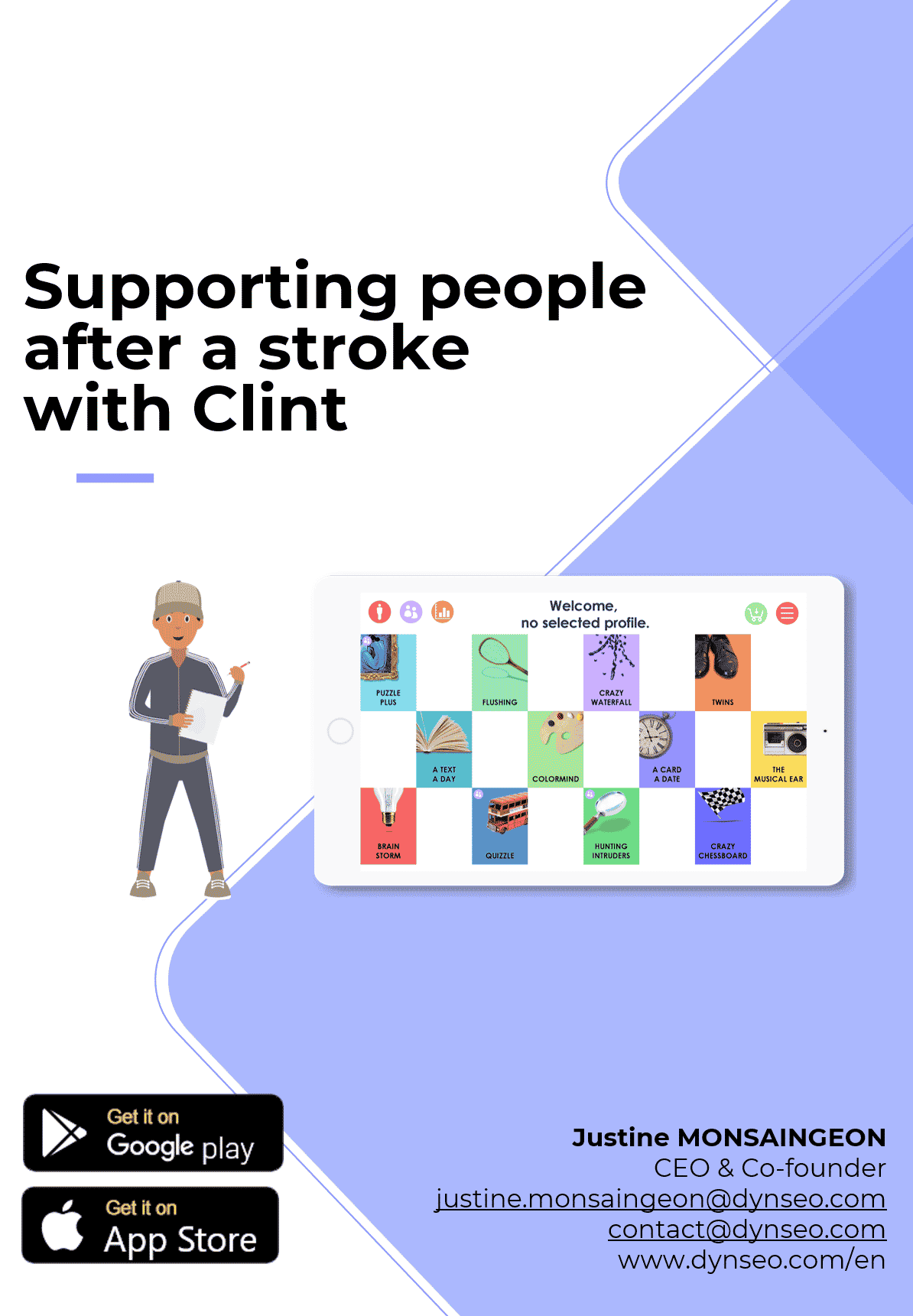During a stroke, the consequences are more or less important, but aphasia is very often identified in patients. It is therefore important to carry out rehabilitation by taking the time to support the person to give them the necessary time and tools to help them regain their speech.
In order to successfully apply the right solutions to aphasia, it is important to take the time to properly identify aphasia and to understand the various symptoms. We have therefore prepared an article to give you some practical advice and allow you to act appropriately without making mistakes. So don’t wait any longer to read the rest!
Different types of aphasia
The word aphasia literally means “without speech”. This disorder always involves difficulties with language, but there are different types of aphasia.
- Broca’s Aphasia: this aphasia affects mostly speech and symptoms can range from not finding words to not being able to speak at all. The comprehension is well preserved.
- Wernicke’s Aphasia: this aphasia manifests itself with a difficulty in oral or written comprehension. In terms of oral language, the person speaks easily, even if he or she sometimes jargons.
- Conduction Aphasia: here, the speech is interrupted by frequent pauses, the person does not find the right words or jargon. The sounds of the words are mixed up and therefore not always understandable. The person is aware of this and will try to correct himself.
- Mixed Transcortical Aphasia: in this case, there are problems in the output and input language, therefore in the speech and in the comprehension at the same time.
- Global aphasia: this aphasia is the most severe, it affects the production of language to the point of making expression almost null. The comprehension disorders are also very important.
The first cause of aphasia is a stroke, but it can also be due to a cranial trauma or to a degenerative disease such as Alzheimer’s.
Understanding aphasia in order to find appropriate solutions
First of all, it is important to be aware of the different symptoms related to aphasia. This will allow you to act well and to apply the right solutions. You will experience different symptoms depending on the location of the stroke lesion. The patient may experience word repetition, mispronunciation, personal jargon, sounds that are difficult to produce, or mixing several words or making them incomprehensible.
When writing, sentences will not make sense and will often be short or incomplete. It is therefore important to correctly identify the symptoms and learn to prevent aphasia as much as possible by adopting a healthy lifestyle as much as possible.
To succeed in relieving a person suffering from aphasia, you will need to put several solutions in place, but you will also need to use an unavoidable asset day after day: patience. Indeed, you will need to be present and take all the time you need to see improvements without forcing the person with the disorder. This can last a few months or several years depending on the difficulties encountered. It will therefore be necessary to be patient in order to succeed in helping the patient without forgetting that speech will not be able to return to 100%, we observe about 80% of the recovery at the maximum.
The Hangman
In this game, the person has to find words with the available letters.
With this game, you stimulate the organization of the letters present in the word (and therefore sounds as well). You also stimulate precise word search from the vocabulary.
Other symptoms may be related to understanding. The person may have difficulty understanding other people or recognizing sounds.
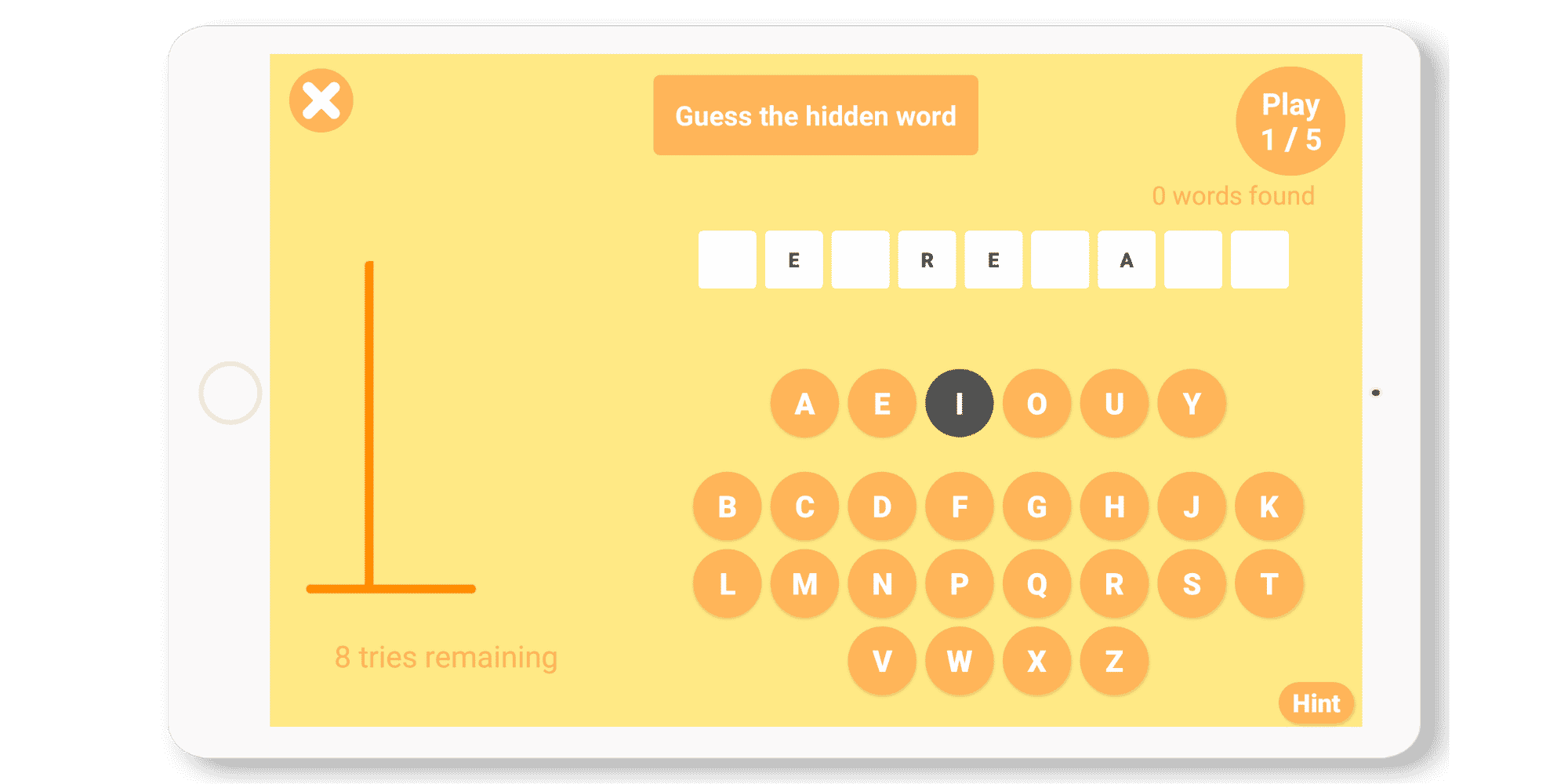
The Musical Ear
In this game, the person has to recognize sounds, instruments or animals.
Here, you stimulate auditory discrimination, attention to sounds as well as the association between sounds and their meaning. All these skills allow for a better understanding.
Aphasia does not only affect oral language, but also writing or reading.
When writing, sentences will not make sense and will often be short or incomplete. It is therefore important to correctly identify the symptoms and learn how to prevent aphasia by adopting a healthy lifestyle as much as possible.

Brainstorm
In this game, the person has to find sayings by ordering the given words.
With this game, you stimulate phrasal structure and word logic.

Syllabus
In this game, the person has to make up words from the given syllables.
Here, you stimulate word composition, letter organizaion and word search in the vocabulay of the person.
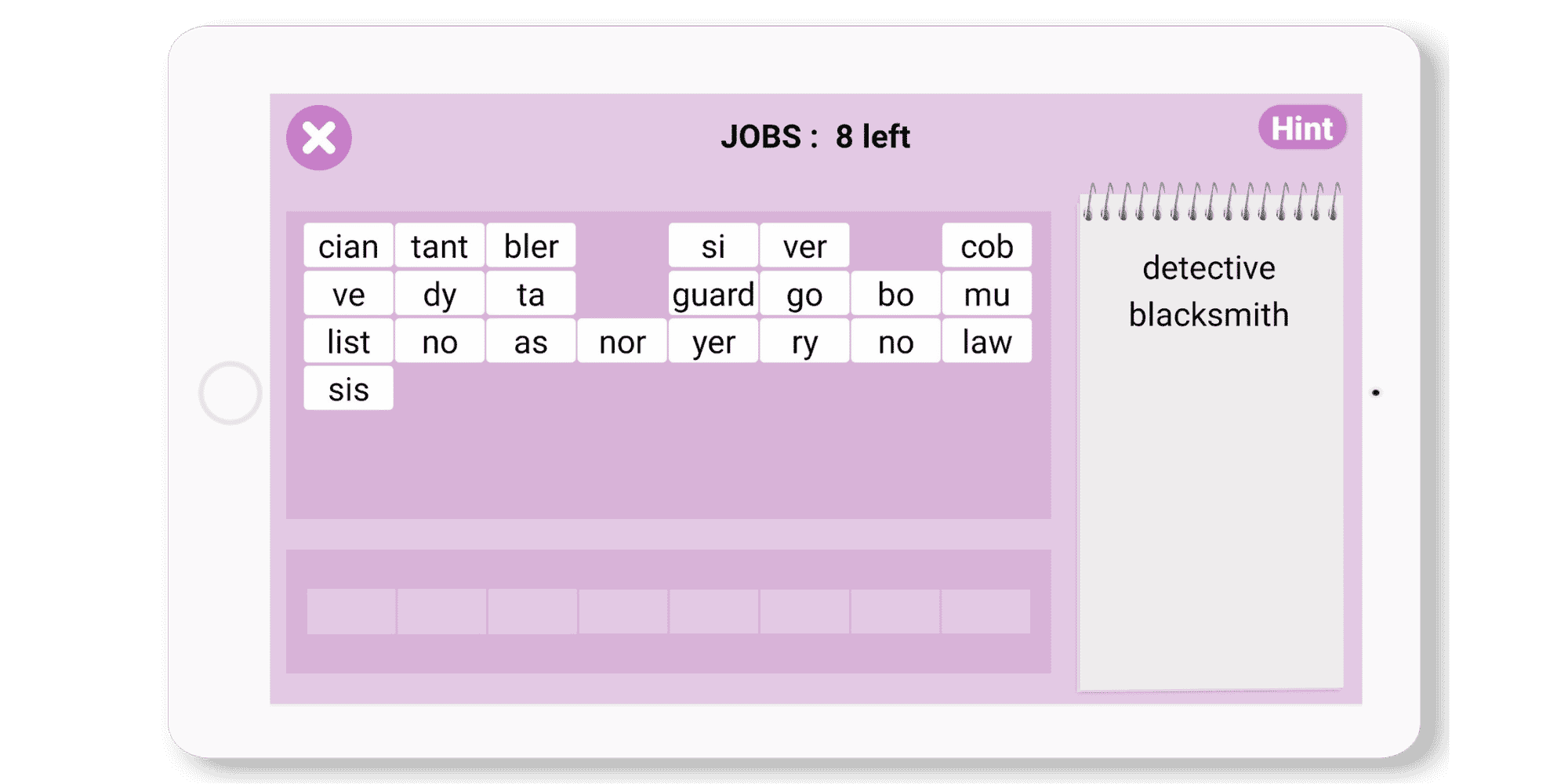
In reading, aphasia often manifests with an aleration in the reading rhythm, with a difficulty to associate graphemes and phonemes and therefore to reproduce the sounds of the words read.
A Text A Day
In this game, the person has to read a new excerpt of a text each day.
By reading a new text every day, you can improve the reading rhythm and the ability to reproduce orally a written text. Moreover, you can discuss about the text with other people in order to improve your understanding of the text and general language.
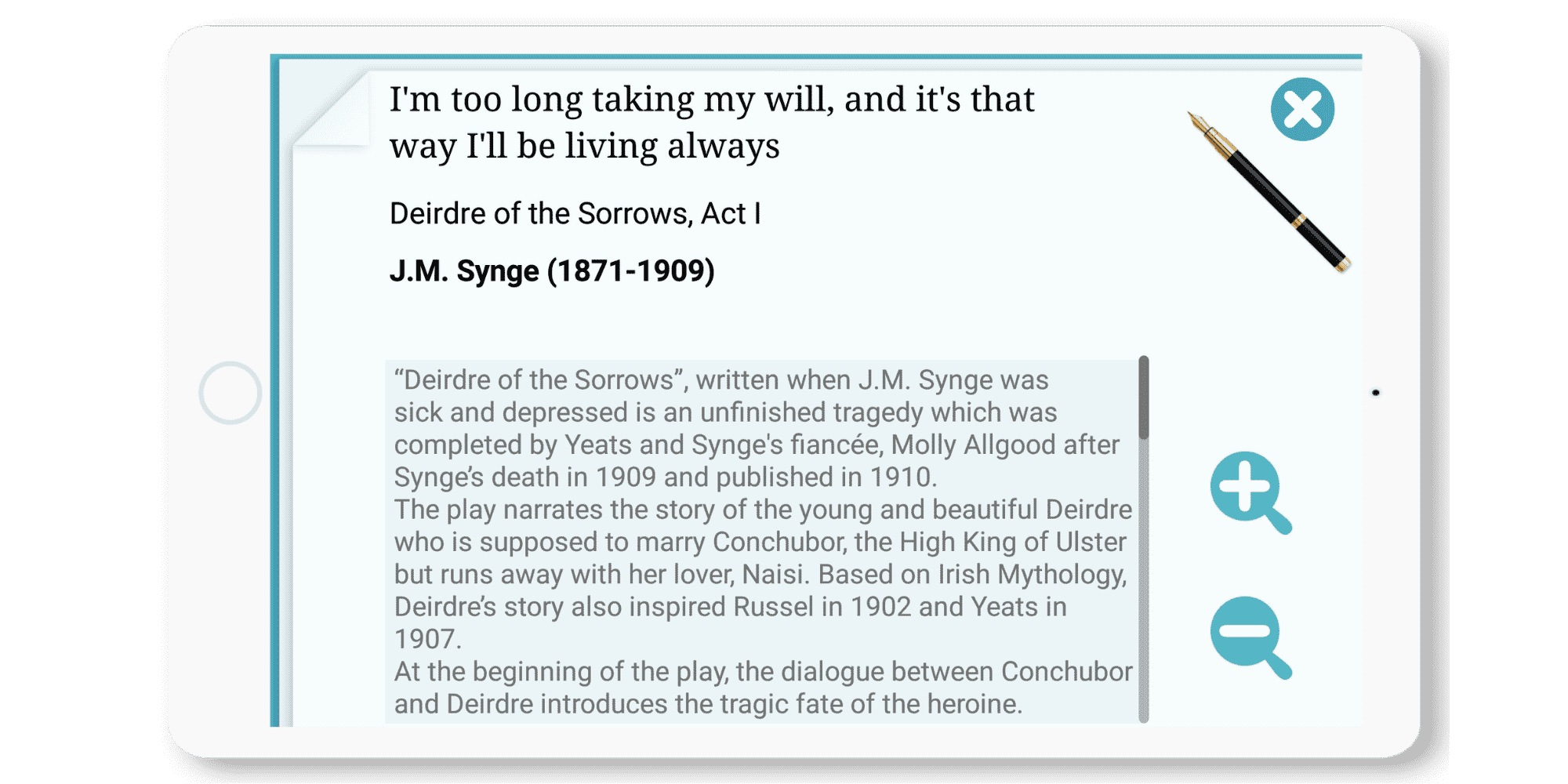
Silly Sequence
In this game, with the “Letter” mode, the person sees a sequence of letters appear on the screen and has to press the button when this sequence is going in an alphabetical order.
With this game, you can improve grapheme recognition and the ability to use the alphabetical system. You can also ask the person to read the letters out loud in order to work on the association of phonemes and graphemes.
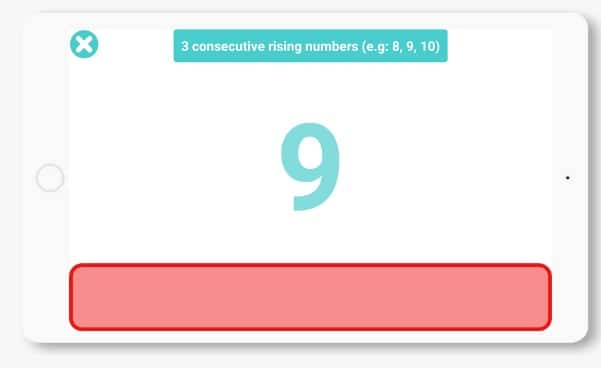
To succeed in relieving a person suffering from aphasia, you will need to put several solutions in place but you will also need to use an essential asset day after day: patience.
Indeed, you will need to be present and take all the time necessary to see improvements without forcing the person with this disorder. This can last a few months or several years depending on the difficulties encountered. It will be necessary to be patient to succeed in helping the patient without forgetting that, most often, speech will not be able to return at 100%.
Solutions for treating aphasia after a stroke
When a person is affected by aphasia, appropriate solutions will need to be put in place to encourage improvements. Indeed, if the damage is light, it will be quite possible to achieve recovery without heavy treatment. For this, it will be sufficient to start by setting up sessions to work on speech therapy through effective rehabilitation. It will be necessary to start them as soon as possible and to set up a schedule with about 4 sessions per week to benefit from a good regularity.
It will be possible to vary the sessions by setting up playful and motivating activities that will make it possible to have fun while working. If the exercises are carried out in a good mood, the results will be seen as quickly as possible and this will motivate you to continue.
Other solutions concern group therapy where participants will practice discussing by initiating conversations and taking turns to express themselves until they make progress while meeting new people.
Therapy can be done by computer if necessary, to vary the methods while proposing various exercises that will avoid going around in circles by proposing activities in a loop. Whatever the method used in each session; it will be necessary to be careful to respect a few elements in order to progress serenely.
Take the time to speak in simple sentences and at a slower pace. Don’t hesitate to take pauses to let the person express themselves without making the mistake of correcting them as they go along or by finishing their sentences, for example. If possible, think about reducing noise to avoid distractions!
CLINT,
your brain coach
As we have seen in this article, aphasia can manifest in several forms and with different symptoms. Moreover, aphasia is always linked to a pathology, such as stroke or Alzheimer’s disease, so it is often comorbid with other cognitive function disorders.
Clint is an application with more than 30 games to stimulate all cognitive functions (memory, attention, language, strategy…).
This app allows you to work on aphasia using fun and adapted activities. You can use it to improve language, comprehension and reading. You can also use it to stimulate cognitive functions globally.
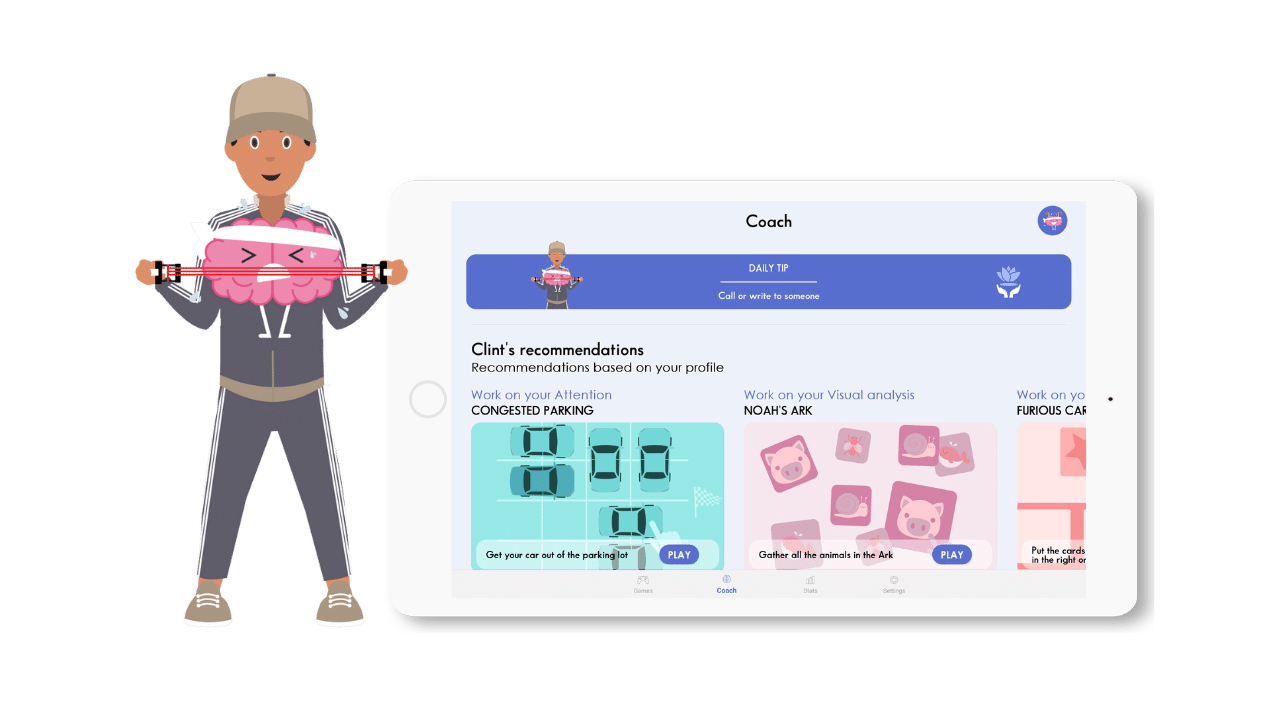
Other articles you might be interested in:
Reconstructing After Stroke: Redefining Identity and Goals.
A stroke is a serious medical condition that occurs when blood flow to the brain is interrupted, causing damage to...
The Different Types of Stroke Explained: Ischemic, Hemorrhagic and TIA.
A stroke is a serious medical condition that occurs when blood flow to a part of the brain is interrupted or reduced,...
Preventing Stroke Recurrence: Measures and Lifestyle Changes.
A stroke is a serious medical condition that occurs when blood flow to the brain is interrupted, causing damage to...




